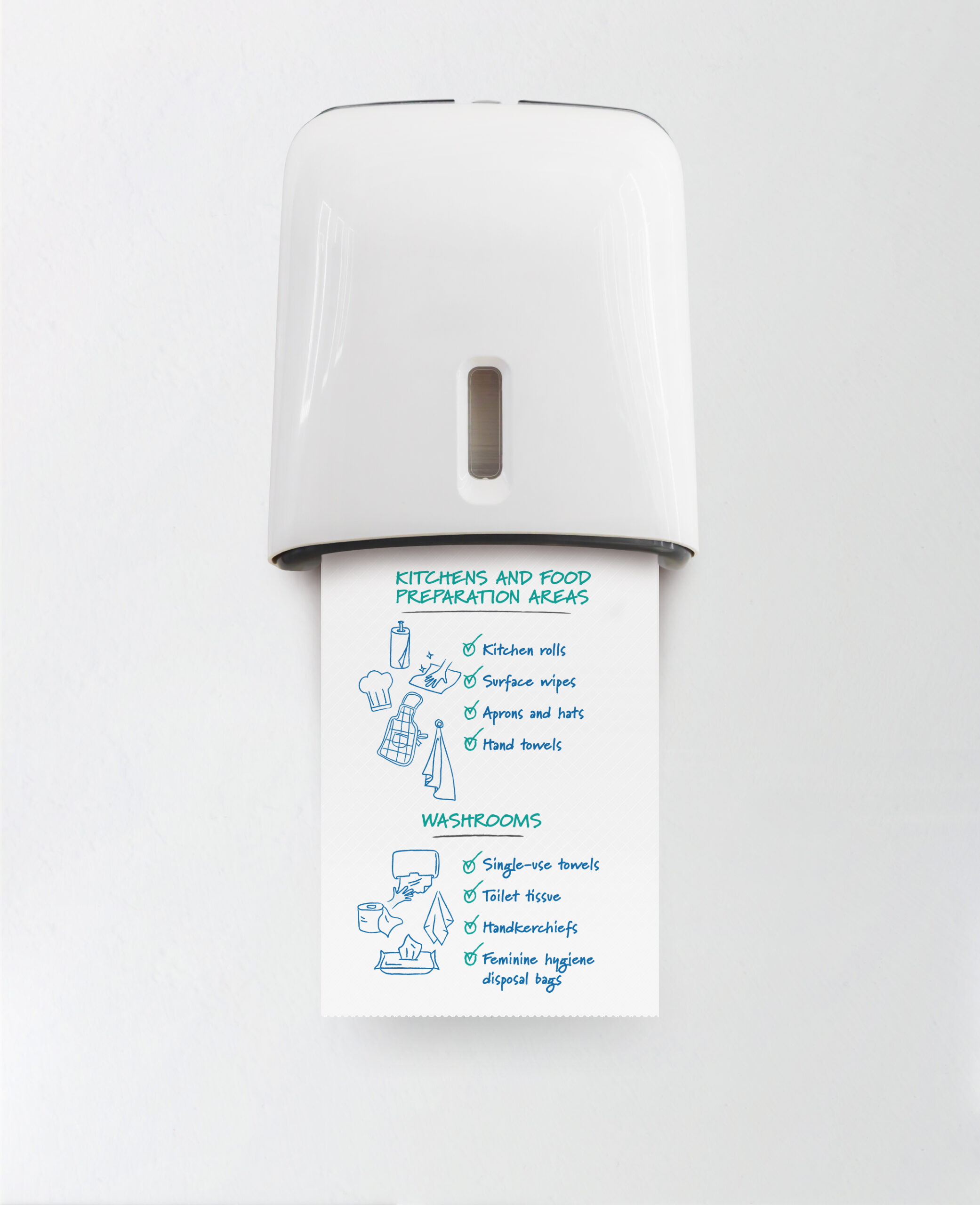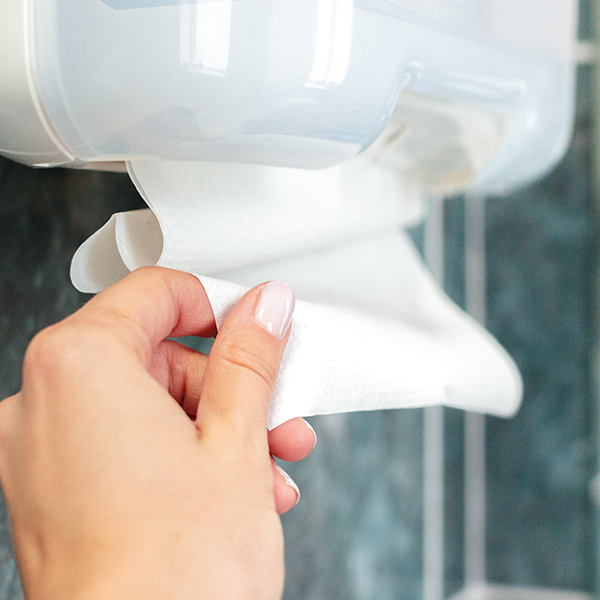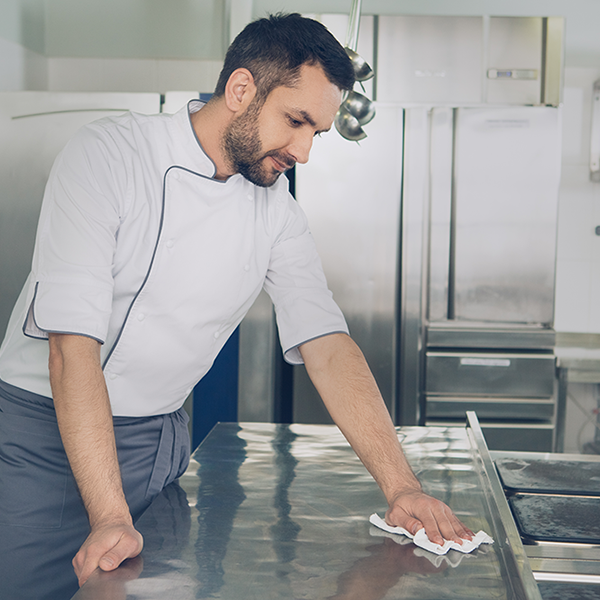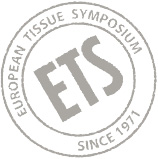No more need for masks, proof of vaccination, restrictions on numbers or reduced opening hours. Today you can show your business in its best light and concentrate on the core task of keeping your customers happy. But let’s not forget the lessons of Covid-19 and continue to ensure that hygiene remains top of mind. Many of the practices that we adopted during the pandemic make a lot of sense and are worth maintaining throughout the year. Practices such as wiping down tables and chairs on a regular basis, cleaning menu covers and ensuring good ventilation in busy areas are important in upholding hygiene. So too are a focus on thorough cleaning and disinfecting in food preparation and cooking areas. Customers expect nothing less and high standards will ensure that they will return again and again. One of the crucial things that we all learned during Covid-19 is the importance of good hand hygiene in maintaining health at home and in public places. These days it should be standard practice for HORECA venues to provide customers and staff with hand sanitiser and single use towels, tissues and wipes.
So make sure that you stock up on the supplies you need to keep your staff and customers safe this summer – including paper tissue products which offer an excellent standard of hygiene. Consult our handy checklist to make sure that you have all the essentials for upholding health and hygiene in your business.

in the HORECA trade
You can’t put a price on hygiene. Customer trust and goodwill that can take so long to build, can be destroyed in an instant due to poor hygiene. Customer complaints and bad reviews can have a devastating impact on your business and reputation. Worse still, serious food contamination and illness issues can result in closure of your business.
From kitchens and food preparation areas through to eating areas and washrooms - hygiene is non-negotiable. The health and safety of customers and staff is paramount and by making hygiene a top priority, catering managers and owners can drive customer confidence and loyalty and ultimately business success.
 Top hygiene tips that will ensure
Top hygiene tips that will ensure5-star customer reviews



We all have hand contact with literally hundreds of objects each day – from door handles to cash machines - and each time we are exposing ourselves to a host of microbes, many of which can survive on the hands for a considerable time. Influenza lasts 10-15 minutes, Herpes for up to two hours, the common cold for up to one week and Rotavirus, which causes gastro-intestinal infections, for up to 60 days. Hence practicing good hand hygiene is crucial in minimising the spread of infection.
Effective hand washing and drying by all those involved in food preparation and serving, is the first line of defence in preventing infection and cross contamination. The whole process should take at least 20 seconds. Hands should be washed and dried thoroughly following the handling of different types of meats and foods, and of course after a visit to the bathroom.
The second line of defence is to ensure that your customers are also practising good hygiene – particularly after a visit to the washroom.

science
supports single-use towelsScientific studies demonstrate single-use towels offer excellent hygiene. Expert microbiologists have measured the impact of different hand drying methods - including paper towels, roller towels, warm air dryers and jet air dryers – on the spread of pathogens and overall washroom hygiene. Studies can be reviewed here.
hospitals
recommend single-use towelsIn hospital washrooms – where upholding hygiene is paramount – experts advise single-use towels for hand drying following hand washing:
- German hospitals recommend single-use towels be used for hand drying following hand washing in public washrooms due to their excellent hygiene properties;
- the French Society for Hospital Hygiene, SF2H1, strongly discourages the use of electric hand dryers as the method of hand drying in hospital washrooms and recommends the use of paper towels as the most effective way to dry hands and minimise the spread of infection following a visit to the washroom.
governments & hygiene authorities
advise single-use towelsIn washrooms adjacent to kitchens and food preparation areas, public hygiene standards require that single-use towels are provided as the means of hand drying. Jet air dryers would never be considered due to their propensity to contaminate air and surfaces. Your customers deserve these same standards and respect.

Tissue paper has applications to suit the hygiene needs in every area of your business:

and toilet rolls

wipers and kitchen rolls

and towels

and delivery businesses providing napkins/serviettes
Scientific studies on exposure and migration show that the quantity of tissue paper used in food contact is very limited and for a short period of time. The Council of Europe has concluded that the use of kitchen towels and napkins in a food environment does not pose a risk to health and that any migration is undetectable or very low.

Washrooms must offer proper hand washing facilities, with soap, followed by a hygienic method of hand drying that will minimise the spread of infection. Single use towels are proven to offer this.
Supporting the development of standards and best practice
ETS encourages the development of standards, performance measures, and continual improvement in best practices for forest ecosystems. Our member companies are committed to supporting the sustainable management of forests based on responsible forest management, social responsibility and economic viability. We fully endorse the work of the EU and other organisations in ensuring that only products from legally sourced wood are sold in the European market, regardless of where it was sourced and the Second Ministerial Conference on the Protection of Forests in Europe, held in Helsinki in 1993.
Upholding certification systems
ETS follows the development of different Forest Certification Schemes at both international and national level and encourages third party verification or certification of compliance with sustainable forestry practices. In particular we applaud the two leading forestry certification systems - PEFC 3 and FSC – as reliable methods of ensuring that fibres used in tissue production come from sustainable forests. They have both contributed greatly to the improvement of forests around the globe.
ETS shares and supports the view of the European Parliament which stated in a resolution on implementing EU Forest Policy that it: " welcomes the efforts of European forestry undertakings to give consumers assurances concerning sustainable forest management which takes account of the multifunctional role of forests, notably by means of certified wood products;” “considers the FSC and PEFC certification systems to be equally suitable for this purpose;” “calls for mutual recognition of the two certification initiatives to be promoted".
Our member companies will continue to work with both systems to further expand their development and continually improve their processes. They are convinced that utilisation of certification systems is one of the best ways to ensure the continuous development of one of the main raw material sources: sustainable managed forests.
- building customer trust and assuring return business.
This page is also available in: French German Italian Polish Spanish















